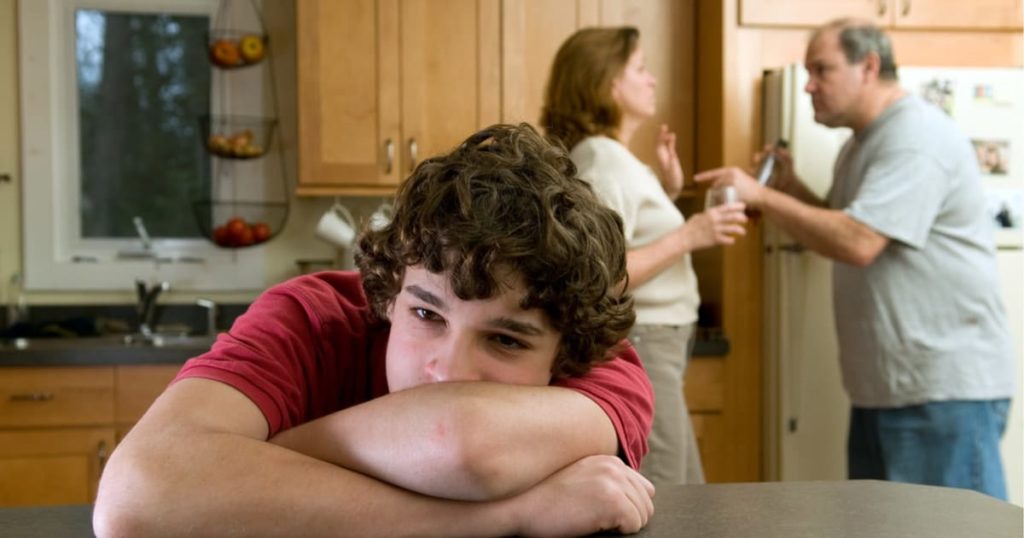Children of alcoholic parents live in a unique world. While most children enjoy comfortable routines, playtime, reliable meals and bonding time with their caregivers, children of alcoholic parents don’t have the same luxuries.
A Harder Lot in Life
According to research comparing children of alcoholics to children of non-alcoholics, children of alcoholic parents are at risk for cognitive, behavioral and emotional problems. Approximately 41% of children of alcoholic parents grow up to have serious coping problems. For example, some children are unable to handle powerful emotions such as disappointment, anger or sadness. Other children learned from their parents that the way to cope with difficult situations is with alcohol or other substances. However, children of alcoholics who receive positive attention from at least one other adult in their lives – such as a teacher, coach or mentor – may be able to learn healthy coping skills. Children of alcoholic parents may also struggle academically. In a study that compared children’s IQ scores as well as academic tests on arithmetic, reading and verbal abilities, children of alcoholic parents had lower test scores in all categories. However, each child had an IQ within normal range. While some researchers suggest that these studies indicate that children of alcoholic parents have weaker intellectual abilities than other children, other experts say that children of alcoholic parents may simply be poor test-takers.
Low Self-Esteem
The same researchers who studied the IQ scores and academic abilities of children of alcoholic parents suggest that these children are more likely to underestimate their abilities. What’s worse is that their mothers also underestimated their abilities and showed a lack of confidence in their children. Given that self-confidence is a major factor in test-taking ability and results, the researchers believe that the children’s low self-esteem played a major role in their poor test performance. Furthermore, the researchers also noted that high levels of stress at home often carry over into other areas of life, which may have weakened the test scores for children of alcoholic parents even more. Overall, children of alcoholic parents are more likely to suffer from a lack of confidence and low self-esteem, which may ripple through other areas of their day-to-day functioning.
Difficulty Interacting With Others
While numerous research studies have been conducted over the years, the most powerful indicators come from those who have actually lived with an alcoholic parent and grown to adulthood. Adult Children of Alcoholics is a global organization with the goal of helping children, teens and adults who have grown up in households where alcohol and other drugs were a problem. According to Adult Children of Alcoholics, there are 14 traits that adult children of alcoholics share, most of which center around difficulty interacting with others. Children of alcoholic parents struggle to relate to other people. A child learns how to interact with the world based on how they interact with parents and caregivers. If a child has an unhealthy relationship with one or both parents, it will be more difficult to form healthy relationships with anyone later in life. Children of alcoholic parents struggle with:
- Feeling close to other people
- Establishing a healthy self-identity without another person’s constant approval
- Interacting with and trusting authority figures
- Feeling overly responsible for caring for others
- Giving in to others too easily or allowing oneself to be manipulated or taken advantage of
- Becoming heavily dependent on a relationship
- Feeling a sense of abandonment
A household with an alcoholic parent is an unstable environment for a child. As the children of alcoholic parents grow older, they are forced to build uncertain structures on top of shaky foundations. Fortunately, with counseling and strong role models, children of alcoholic parents can become highly resilient and enjoy healthy relationships. Sources: Adult Children of Alcoholics World Service Organization. (2017). The Laundry List. U.S. Department of Health and Human Services. (2000). Children of Alcoholics: Are They Different?

